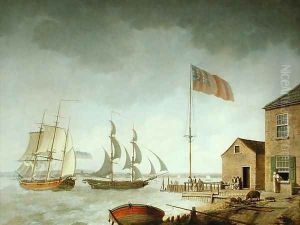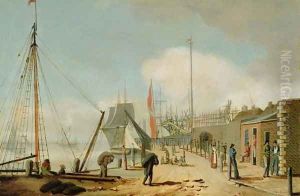William Barton Paintings
William Barton is an Australian didgeridoo player, composer, and vocalist, renowned for his contributions to both classical music and contemporary music. Born in 1981 in Mount Isa, Queensland, Barton has been a pioneering figure in integrating the didgeridoo with classical music, bringing this traditional Indigenous Australian instrument to concert halls and classical music audiences around the world.
Barton's musical journey began at a young age, learning the didgeridoo from his uncle, Arthur Peterson, an elder of the Wannyi, Lardil, and Kalkadunga tribes. His talent and dedication to the instrument were evident early on, and by the age of 15, he was already performing professionally. Barton's unique approach to the didgeridoo, incorporating elements of classical music, jazz, and improvisation, has garnered him international acclaim.
Throughout his career, William Barton has collaborated with a wide range of orchestras and ensembles, including the Australian Chamber Orchestra, the Berlin Philharmonic, and the Sydney Symphony Orchestra. His work has not only showcased the versatility of the didgeridoo but also served as a bridge between Indigenous Australian culture and classical music traditions. Barton is also a passionate advocate for music education, particularly in providing opportunities for Indigenous youth, and has conducted numerous workshops and educational programs across Australia.
Barton's contributions to music and culture have been recognized with several awards, including the ARIA Award for Best Classical Album. His compositions often feature a blend of didgeridoo, voice, and orchestral instruments, creating a unique sound that transcends cultural and musical boundaries. Despite his accomplishments, Barton remains committed to his roots and continues to explore the depths of his heritage and the possibilities of the didgeridoo in the contemporary music scene.

